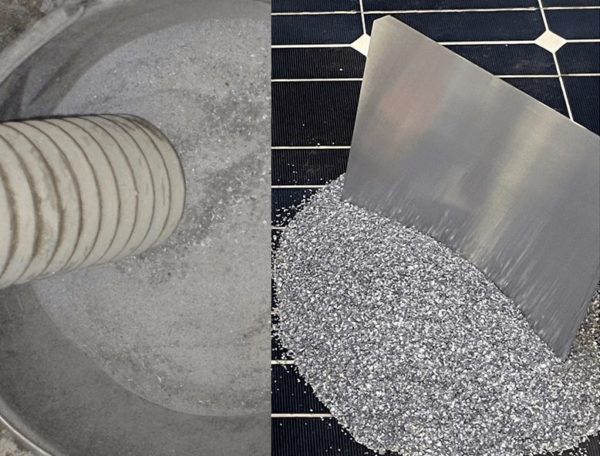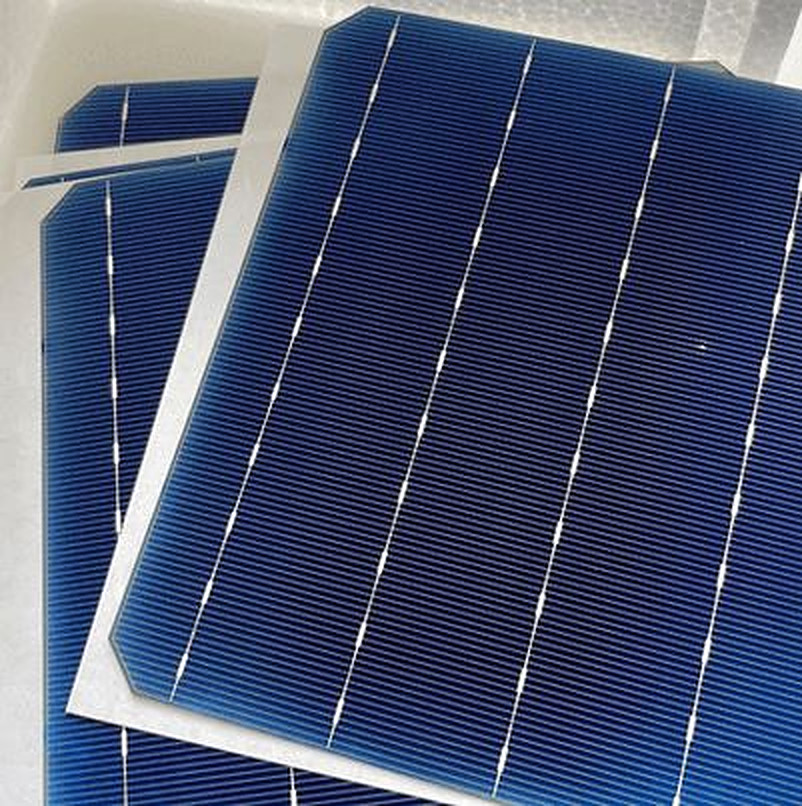The Fraunhofer Institute for Solar Energy Systems ISE is leading a German consortium in the development of PERC solar cells based on 100% crystalline silicon recycled from end-of-life photovoltaic panels.
The silicon is recycled through a technique conceived by German specialist Reiling GmbH & Co. KG and the Fraunhofer Center for Silicon Photovoltaics CSP, which is claimed to recycle silicon from different types of modules, regardless of manufacturer and origin.
“At Fraunhofer CSP, the cell fragments with sizes from 0.1 to 1 millimeter are first freed from the glass and plastic by various sorting processes,” the Fraunhofer ISE said in a statement. “This is followed by the step-by-step removal of the backside contact, the silver contacts, the anti-reflective layer and finally the emitter by wet chemical etching. The silicon cleaned in this way is processed into monocrystalline or quasi-monocrystalline ingots in standard processes and then into wafers.”

Image: Fraunhofer ISE
The German scientists said the cells were fabricated only with wafers relying on recycled silicon and that no commercial ultrapure silicon was added during the manufacturing process.
Popular content
The performance of the first trial PERC cells was tested and the devices were found to achieve a power conversion efficiency of 19.7%. “This is below the efficiency of today's premium PERC solar cells, which have an efficiency of around 22.2 percent, but it is certainly above that of the solar cells in the old, discarded modules,” said Peter Dold, project manager at Fraunhofer CSP, without providing more technical details.
This content is protected by copyright and may not be reused. If you want to cooperate with us and would like to reuse some of our content, please contact: editors@pv-magazine.com.



8 comments
By submitting this form you agree to pv magazine using your data for the purposes of publishing your comment.
Your personal data will only be disclosed or otherwise transmitted to third parties for the purposes of spam filtering or if this is necessary for technical maintenance of the website. Any other transfer to third parties will not take place unless this is justified on the basis of applicable data protection regulations or if pv magazine is legally obliged to do so.
You may revoke this consent at any time with effect for the future, in which case your personal data will be deleted immediately. Otherwise, your data will be deleted if pv magazine has processed your request or the purpose of data storage is fulfilled.
Further information on data privacy can be found in our Data Protection Policy.